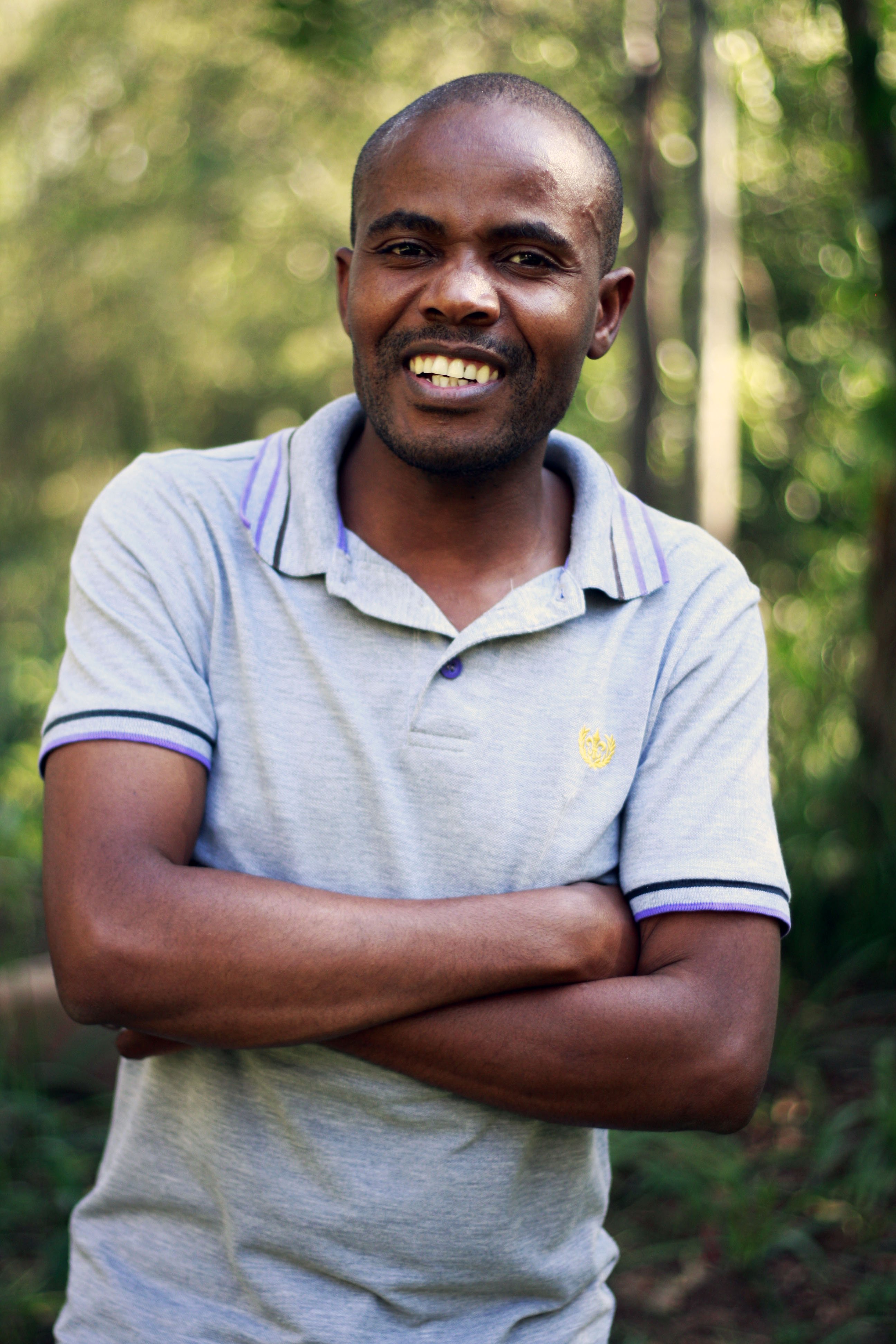 |
Melt Ndlovu (40) has just returned from South Sudan where he spent three months working as a Flying Nurse Supervisor. He was based in Pibor, but would often travel to Gumuruk and Likongoli projects to offer support. His stay was cut short following the looting of the MSF medical compound in Pibor on 23 February. Melt and other international staff members were evacuated a few days after the incident.
When the looting occurred, Melt was in Juba. While he was away, he found his room ransacked like the rest of the compound. He lost some items, but unlike his fellow Zimbabwean Melusi, he had a few clothes when he visited Juba a few days before the looting.
Melt went to Sierra Leone to fight Ebola for his first assignment with MSF in 2014. A nurse by profession, Melt joined MSF in 2009 as a health promoter and outreach supervisor in Johannesburg. He also worked in MSF’s Eshowe project in KwaZulu Natal as a survey nurse. Melt holds a Diploma in Nursing, and a Bachelor of Arts in Development Studies. He is married and has two kids.
What was the context like in South Sudan?
It was unstable in Pibor for a long time, but the situation escalated when rival groups began fighting. Our team was reduced because the situation kept fluctuating until on 23 February when the looting occurred. Just before this incident, four out of nine international staff were evacuated to Juba.
What were some of your roles and responsibilities?
- I was supporting the various departments including in the Outpatient, the Antenatal Integrated Case Management, Immunisation and Nutrition at the two MSF projects in Gumuruk and Likongoli.
- Ensure the smooth running of the two clinics
- Manage referral channels
- Pick up patients from the community, asses their condition and accompany them to Pibor Hospital for admission
- Human resources recruitment
- Make sure there was enough medical stock always
- Training of staff
- Organise vaccination and nutritional programmes
- Data management
How big was your team in Likongoli and Gumuruk?
There were 21 and 32 staff members in Likongoli and Gumuruk respectively.
What were some of the morbidities you saw at the two health centres?
Malaria, respiratory tract infection, trauma cases as a result of gunshots and snakebites. We were attending to an average of 100 patients per day in Gumuruk and 80 in Likongoli
What were some of the fulfilling moments?
- Despite the bad context and fighting amongst the South Sudanese people, interacting with them was always pleasant because they are very welcoming, sociable and simple people.
- South Sudanese people are quite eager to learn and always welcome new ideas
- I loved their traditional food
What was the best part of your job?
Changing and implementing new aspects in vaccination and nutritional programmes was rewarding. This is why I was pained to leave South Sudan abruptly without finishing what I started.
What were some of the highlights of this assignment?
Being able to put my multiple skills into good use while in South Sudan was not only good for me, but for my team. There are some instances when I had to step in and employ my midwifery skills because the team was quite lean. At one stage, I helped with a complicated breech delivery. I had not used my midwifery skills in a long time.
Putting in place a structure for stock control was a great experience for me.
What were some of the challenges you faced?
Accessing most places during the rainy season was extremely difficult, we either had to use a helicopter, try the road or use boats. Sometimes we ended up not going for outreach campaigns because of inaccessibility.
Communication network – We could hardly communicate with the outside world because there is no telephone network.
The migratory nature of the community made it difficult to consistently monitor or follow up on patients. Most community members would move from one place to another in search of grazing land and food.
Data management – because of low skills amongst staff, some of them found it difficult to collect data and to process it, hence there were some inaccuracies. I ended up spending a lot of time cleaning the data for it to make sense.
What kept you going or motivated despite these huge challenges?
Our Project Medical Referent stood out among the rest. He was quite supportive and he was quite confident of my capabilities, so he never breathed on my neck because he knew I wouldn’t disappoint him. I always made sure I delivered.
What have you learnt from this experience?
My management skills were sharpened because I was able to lead a fairly complex multicultural team and made sure we never had any conflicts.
What are your future plans?
I am not tired at all, so I am hoping to go for another assignment soon, but hopefully a low risk context this time for a change
#FieldworkerFridays
Find out more about MSF's work in South-sudan